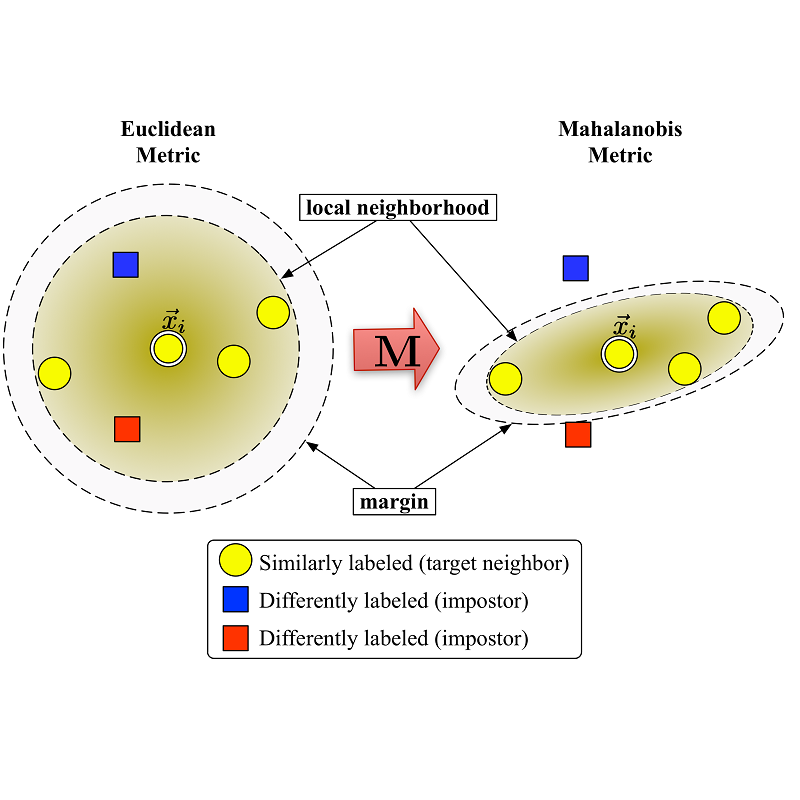Conversational agents are usually designed for closed-world environments. Unfortunately, users can behave unexpectedly. Based on the open-world environment, we often encounter the situation that the training and test data are sampled from different distributions. Then, data from different distributions are called out-of-domain (OOD). A robust conversational agent needs to react to these OOD utterances adequately. Thus, the importance of robust OOD detection is emphasized. Unfortunately, collecting OOD data is a challenging task. We have designed an OOD detection algorithm independent of OOD data that outperforms a wide range of current state-of-the-art algorithms on publicly available datasets. Our algorithm is based on a simple but efficient approach of combining metric learning with adaptive decision boundary. Furthermore, compared to other algorithms, we have found that our proposed algorithm has significantly improved OOD performance in a scenario with a lower number of classes while preserving the accuracy for in-domain (IND) classes.
翻译:不幸的是,用户的行为可能出乎意料。根据开放世界环境,我们经常遇到培训和测试数据从不同分布中抽样的情况。然后,不同分布的数据被称为外部数据(OOOD)。一个强大的对口代理需要对这些OOOD的表达方式作出适当反应。因此,强调强力 OOD探测的重要性。不幸的是,收集OOOD数据是一项艰巨的任务。我们设计了一个OOD检测算法,该算法独立于OOOD数据,该算法在公开可得的数据集中优于目前的各种最新算法。我们的算法基于简单而有效的方法,将矩阵学习与适应性决定界限相结合。此外,与其他算法相比,我们发现我们提议的算法大大改进了OOD在较低等级的情景中的性能,同时保持了内部(IND)等级的准确性。



